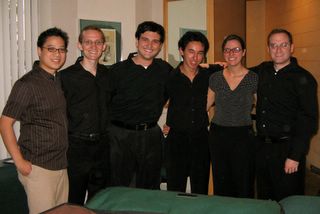
downtown Tacoma, with Mt. Rainier in the background

The double bass blog with a hidden Rilke agenda.
The college football season is upon us, which is not that exciting in itself. Now that the NCAA governing council has announced guidelines restricting the use of Native American-inspired nicknames, though, I have a newfound sense of anticipation. I'm hoping that some of the schools will take the example of the USC Trojans and adopt the names of failed or destroyed civilizations, such as those described in Jared Diamond's extraordinary Collapse: How societies choose to fail or to succeed. These names might help to promulgate sociological and ecological awareness among college football fans. Everyone knows how the Trojans fought valiantly before being tricked and brutally slaughtered; but if these schools take my suggestions, several less well-known but equally unfortunate societies will get their rightful recognition as well!
Mississippi State Mangarevans
With too many people and too little food, Mangareva society slid into a nightmare of civil war and chronic hunger, whose consequences are recalled in detail by modern islanders. For protein, people turned to cannibalism, in the form not only of eating freshly dead people but also of digging up and eating buried corpses. Chronic fighting broke out over the precious remaining cultivable land; the winning side redistributed the land of the losers. Instead of an orderly political system based on hereditary chiefs, non-hereditary warriors took over. The thought of Lilliputian military dictatorships on eastern and western Mangareva, battling for control of an island only five miles long, could seem funny if it were not so tragic. — Collapse, p. 132
If those Lilliputian military dictatorships were battling for control of a hundred yards of gridiron, though, it might make for some smash-mouth football!
San Diego State Dorsets
Each of us can imagine our own scenario for the end of Dorset culture. One guess of mine is that, among groups of Dorset people starving in a difficult winter, the women just deserted their men and walked over to Inuit camps where they knew that people were feasting on bowhead whales and ringed seals. — p. 260
Sort of like the wives and girlfriends of dedicated Dorset football fans!
Florida State Easter Islanders
We know of not more than a hundred pukao [tall cylindrical monuments], reserved for statues on the biggest and richest ahu [enormous stone platforms] built late in Easter prehistory. I cannot resist the thought that they were produced as a show of one-upmanship. They seem to proclaim: “All right, so you can erect a statue 30 feet high, but look at me: I can put this 12-ton pukao on top of my statue; you try to top that, you wimp!” — p. 98
Tallahassee may be nowhere near the South Pacific, but those huge heads would look great on a football helmet!
Virginia Tech Vinlanders
According to the sagas, the first Indians that the Vikings met were a group of nine, of whom they killed eight, while the ninth fled. That was not a promising start to establishing friendship. — p. 209
'Skraelings,' the Old Norse word that the Norse applied to all three groups of New World natives that they encountered in Vinland or Greenland (Inuit, Dorset, and Indians), translates approximately as 'wretches.' It also bodes poorly for peaceful relations if you take the first Inuit or Dorset person whom you see, and you try stabbing him as an experiment to figure out how much he bleeds.... These first contacts go a long way towards explaining why the Norse did not establish a good trading relationship with the Inuit. — p. 261
The Vinlanders might have poor trading relations, but they'd do a great job of recruiting sadistic teenaged linebackers!
Of course, Collapse discusses several more successful societies which also deserve recognition as college football mascots. Here are a couple of those:
Texas Tikopians
Tikopia chiefs each year carry out a ritual in which they preach an ideal of Zero Population Growth for the island, unaware that an organization founded with that name (but subsequently renamed) and devoted to that goal has also arisen in the First World... Much commoner than...explicit suicide was “virtual suicide” by setting out on dangerous overseas voyages... For instance, [anthropologist Raymond] Firth learned in 1929 that a Tikopian man named Pa Nukumara, the younger brother of a chief still alive then, had gone to sea with two of his own sons during a severe drought and famine, with the express intent of dying quickly, instead of slowly starving to death on shore. — p. 290-291
If they could get a few guys like Pa Nukumara on special teams, the Tikopians would have it made!
Navy New Guineans
New Guineans are more curious and experimental than any other people that I have encountered. When in my early years in New Guinea I saw someone who had acquired a pencil, which was still an unfamiliar object then, the pencil would be tried out for myriad purposes other than writing: a hair decoration? a stabbing tool? something to chew on? a long earring? a plug through the pierced nasal septum? — p. 285
The New Guineans' ingenuity will surely inspire some new football plays, as well as new ear and nasal decorations, not to mention stabbing tools!




















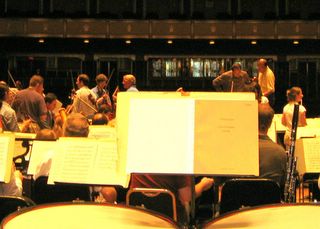

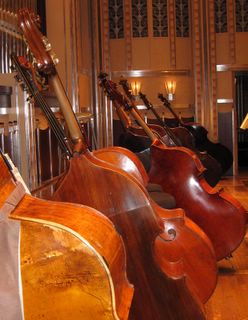

Can I just tell you how cool it is that the star blog editor redpencil37 visited World Wide Fred today?! In just, like, 14 minutes, she fixed all my wack-ass grammar, and she even noticed that I had spelled the name of my dog Phishy four different ways, all for just $5 a post! Now all I have to do is go back and find all the places she wrote in "[sic]" - that must stand for "so incredibly cool!"Anyway, I hope my idea some day becomes a reality - in the meantime, I guess all the bloggers out they're will just have to edit there own work. So their.
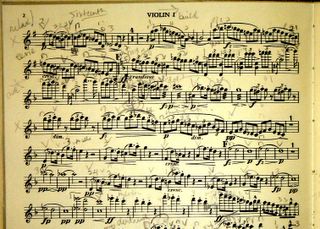

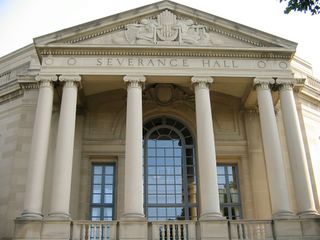

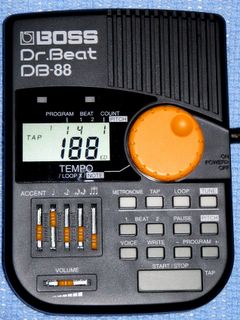

The first-chair violinist, Jakub Cernohorsky of the Czech Republic, exhibited all the makings of a future concertmaster. His solos were assured and tuneful.




Hummel settled into a thoroughly bourgeois existence, complete with house and garden. Through Goethe he met the leading figures of the intellectual world and soon became one of Weimar's tourist attractions: without seeing Goethe and hearing Hummel play, no visit to the town was complete.He had something of a rivalry with Beethoven for a while - they were the most respected pianists and composers of the time, and their disciples had a little bit of Viennese gang warfare going. They patched up their differences, though - Hummel seems to have been a very pleasant guy, which shows up in his music in a tendency to give everyone a nice melodic solo towards the end of the piece, except the bass player. Hummel was a pallbearer at Beethoven's funeral, and at a memorial concert he performed an improvisation on the prisoner's chorus from Fidelio. It must have been a touching moment, sort of like the end of West Side Story, when the Jets and the Sharks decide to get along, or when they spill the bottle of malt liquor over the grave in that Boyz II Men video.
